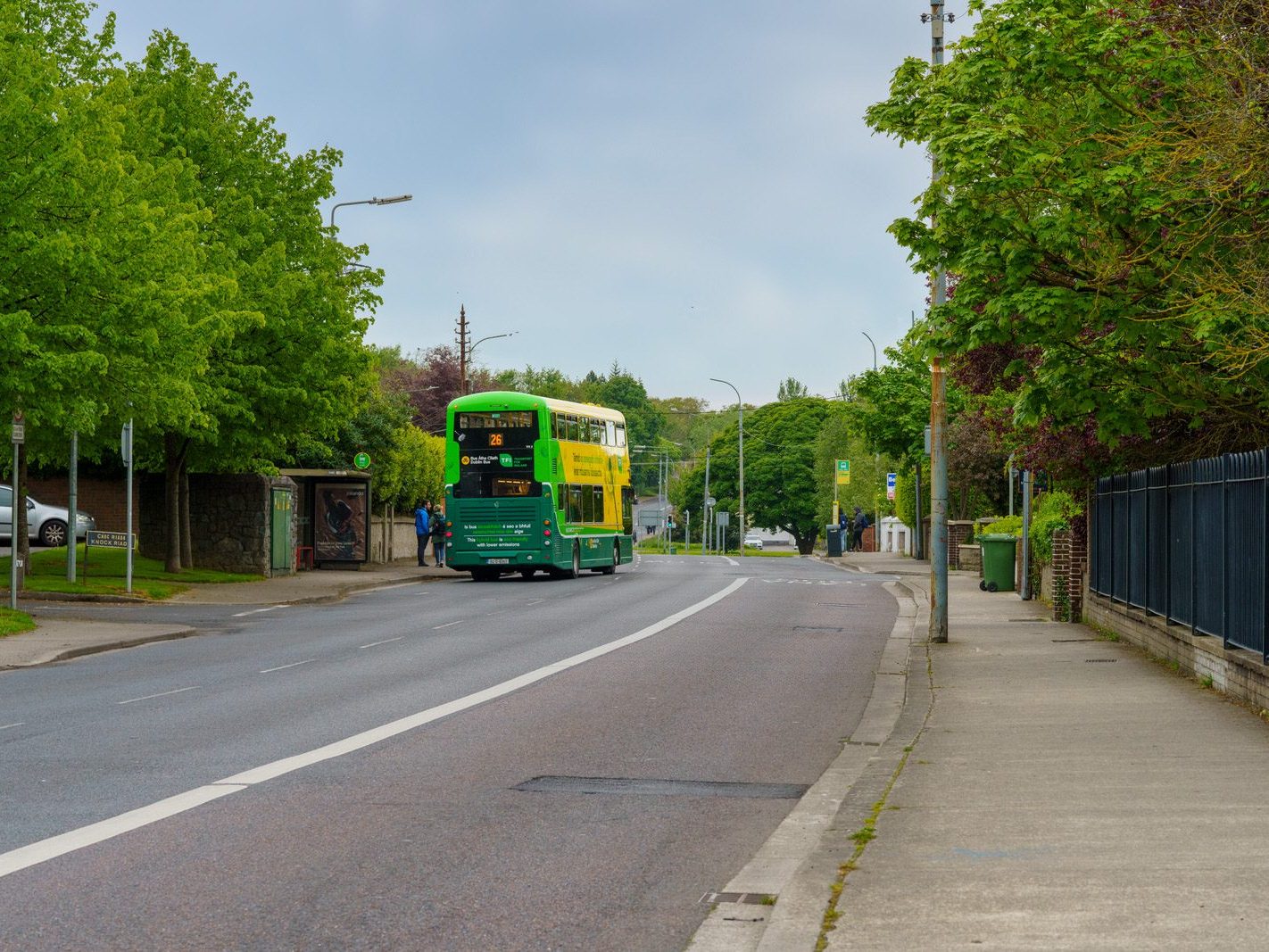CHAPELIZOD ON THE SOUTH BANK OF THE RIVER LIFFEY
Exploring Chapelizod and the Origins of “Lucalizod”
I recently took the 26 bus to Chapelizod, a village on the south bank of the River Liffey. My route took me along Lucan Road, the R112 slip road, the Chapelizod Bypass, and eventually Old Lucan Road, ending in beautiful Waterstown Public Park.
The “Lucalizod” Connection
A few weeks ago, I overheard someone say “Lucalizod” on the bus and dismissed it as a mispronunciation of the energy drink Lucozade. However, I later discovered a fascinating connection: James Joyce merged the names of Lucan and Chapelizod into “Lucalizod” within his novel Finnegans Wake.
A Bit About Lucan
Let’s sidetrack for a moment to learn about Lucan. This suburban town in County Dublin lies 12 km west of Dublin’s centre, nestled along the River Liffey. Famous for the Strawberry Beds, Lucan Weir, and the River Griffeen, it straddles South Dublin with parts extending into Fingal. Lucan is easily accessible from the N4 and M50 motorway (Junction 7).
History of Lucan
Lucan’s popularity soared after a sulphurous spa was discovered in 1758. It quickly became a trendy weekend getaway from Dublin, leading to significant development. By 1795, the area boasted a ballroom and hotel. Much of Lucan village dates back to a major redevelopment around 1815. Lucan was even once a terminus of the Dublin city tram line serving both Lucan and Leixlip.
Lucozade Explained
Speaking of mispronunciations, Lucozade is a British soft drink and energy drink brand now owned by Suntory. Originally called “Glucozade”, it was created in 1927 as an energy drink for those feeling unwell and was primarily sold through pharmacies. Its classic slogan, “Lucozade aids recovery”, lingers from this era. In the 1980s, it became popular as a sports drink and is now widely available throughout the UK.

![DUBLINBIKES DOCKING STATION 58 [UPPER GRAND CANAL STREET CLOSE TO LOVE LANE]-232431-1 DUBLINBIKES DOCKING STATION 58 [UPPER GRAND CANAL STREET CLOSE TO LOVE LANE]-232431-1](https://excellentstreetimages.com/PublicTransportWordPress/wp-content/uploads/2024/05/DUBLINBIKES-DOCKING-STATION-58-UPPER-GRAND-CANAL-STREET-CLOSE-TO-LOVE-LANE-232431-1-1422x1067.jpg)
![DUBLINBIKES DOCKING STATION 58 [UPPER GRAND CANAL STREET CLOSE TO LOVE LANE]-232429-1 DUBLINBIKES DOCKING STATION 58 [UPPER GRAND CANAL STREET CLOSE TO LOVE LANE]-232429-1](https://excellentstreetimages.com/PublicTransportWordPress/wp-content/uploads/2024/05/DUBLINBIKES-DOCKING-STATION-58-UPPER-GRAND-CANAL-STREET-CLOSE-TO-LOVE-LANE-232429-1-1422x1067.jpg)
![DUBLINBIKES DOCKING STATION 58 [UPPER GRAND CANAL STREET CLOSE TO LOVE LANE]-232430-1 DUBLINBIKES DOCKING STATION 58 [UPPER GRAND CANAL STREET CLOSE TO LOVE LANE]-232430-1](https://excellentstreetimages.com/PublicTransportWordPress/wp-content/uploads/2024/05/DUBLINBIKES-DOCKING-STATION-58-UPPER-GRAND-CANAL-STREET-CLOSE-TO-LOVE-LANE-232430-1-1422x1067.jpg)
![DUBLINBIKES DOCKING STATION 58 [UPPER GRAND CANAL STREET CLOSE TO LOVE LANE]-232427-1 DUBLINBIKES DOCKING STATION 58 [UPPER GRAND CANAL STREET CLOSE TO LOVE LANE]-232427-1](https://excellentstreetimages.com/PublicTransportWordPress/wp-content/uploads/2024/05/DUBLINBIKES-DOCKING-STATION-58-UPPER-GRAND-CANAL-STREET-CLOSE-TO-LOVE-LANE-232427-1-1422x1067.jpg)
![DUBLINBIKES DOCKING STATION 58 [UPPER GRAND CANAL STREET CLOSE TO LOVE LANE]-232428-1 DUBLINBIKES DOCKING STATION 58 [UPPER GRAND CANAL STREET CLOSE TO LOVE LANE]-232428-1](https://excellentstreetimages.com/PublicTransportWordPress/wp-content/uploads/2024/05/DUBLINBIKES-DOCKING-STATION-58-UPPER-GRAND-CANAL-STREET-CLOSE-TO-LOVE-LANE-232428-1-1422x1067.jpg)
![REBRANDED DUBLINBIKES BIKES [PEDAL POWER AT THE FOUR COURTS TRAM STOP]-231786-1 REBRANDED DUBLINBIKES BIKES [PEDAL POWER AT THE FOUR COURTS TRAM STOP]-231786-1](https://excellentstreetimages.com/PublicTransportWordPress/wp-content/uploads/2024/04/REBRANDED-DUBLINBIKES-BIKES-PEDAL-POWER-AT-THE-FOUR-COURTS-TRAM-STOP-231786-1.jpg)
![REBRANDED DUBLINBIKES BIKES [PEDAL POWER AT THE FOUR COURTS TRAM STOP]-231787-1 REBRANDED DUBLINBIKES BIKES [PEDAL POWER AT THE FOUR COURTS TRAM STOP]-231787-1](https://excellentstreetimages.com/PublicTransportWordPress/wp-content/uploads/2024/04/REBRANDED-DUBLINBIKES-BIKES-PEDAL-POWER-AT-THE-FOUR-COURTS-TRAM-STOP-231787-1.jpg)
![REBRANDED DUBLINBIKES BIKES [PEDAL POWER AT THE FOUR COURTS TRAM STOP]-231788-1 REBRANDED DUBLINBIKES BIKES [PEDAL POWER AT THE FOUR COURTS TRAM STOP]-231788-1](https://excellentstreetimages.com/PublicTransportWordPress/wp-content/uploads/2024/04/REBRANDED-DUBLINBIKES-BIKES-PEDAL-POWER-AT-THE-FOUR-COURTS-TRAM-STOP-231788-1.jpg)
![REBRANDED DUBLINBIKES BIKES [PEDAL POWER AT THE FOUR COURTS TRAM STOP]-231789-1 REBRANDED DUBLINBIKES BIKES [PEDAL POWER AT THE FOUR COURTS TRAM STOP]-231789-1](https://excellentstreetimages.com/PublicTransportWordPress/wp-content/uploads/2024/04/REBRANDED-DUBLINBIKES-BIKES-PEDAL-POWER-AT-THE-FOUR-COURTS-TRAM-STOP-231789-1.jpg)
![REBRANDED DUBLINBIKES BIKES [PEDAL POWER AT THE FOUR COURTS TRAM STOP]-231790-1 REBRANDED DUBLINBIKES BIKES [PEDAL POWER AT THE FOUR COURTS TRAM STOP]-231790-1](https://excellentstreetimages.com/PublicTransportWordPress/wp-content/uploads/2024/04/REBRANDED-DUBLINBIKES-BIKES-PEDAL-POWER-AT-THE-FOUR-COURTS-TRAM-STOP-231790-1.jpg)
![A CLUSTER OF DUBLINBIKES DOCKING STATIONS [LOWER AND UPPER GRANGEGORMAN]-223837-1 A CLUSTER OF DUBLINBIKES DOCKING STATIONS [LOWER AND UPPER GRANGEGORMAN]-223837-1](https://excellentstreetimages.com/PublicTransportWordPress/wp-content/uploads/2024/04/A-CLUSTER-OF-DUBLINBIKES-DOCKING-STATIONS-LOWER-AND-UPPER-GRANGEGORMAN-223837-1-1422x1067.jpg)
![A CLUSTER OF DUBLINBIKES DOCKING STATIONS [LOWER AND UPPER GRANGEGORMAN]-223840-1 A CLUSTER OF DUBLINBIKES DOCKING STATIONS [LOWER AND UPPER GRANGEGORMAN]-223840-1](https://excellentstreetimages.com/PublicTransportWordPress/wp-content/uploads/2024/04/A-CLUSTER-OF-DUBLINBIKES-DOCKING-STATIONS-LOWER-AND-UPPER-GRANGEGORMAN-223840-1-1422x1067.jpg)
![A CLUSTER OF DUBLINBIKES DOCKING STATIONS [LOWER AND UPPER GRANGEGORMAN]-223841-1 A CLUSTER OF DUBLINBIKES DOCKING STATIONS [LOWER AND UPPER GRANGEGORMAN]-223841-1](https://excellentstreetimages.com/PublicTransportWordPress/wp-content/uploads/2024/04/A-CLUSTER-OF-DUBLINBIKES-DOCKING-STATIONS-LOWER-AND-UPPER-GRANGEGORMAN-223841-1-1422x1067.jpg)
![A CLUSTER OF DUBLINBIKES DOCKING STATIONS [LOWER AND UPPER GRANGEGORMAN]-223838-1 A CLUSTER OF DUBLINBIKES DOCKING STATIONS [LOWER AND UPPER GRANGEGORMAN]-223838-1](https://excellentstreetimages.com/PublicTransportWordPress/wp-content/uploads/2024/04/A-CLUSTER-OF-DUBLINBIKES-DOCKING-STATIONS-LOWER-AND-UPPER-GRANGEGORMAN-223838-1-1422x1067.jpg)
![A CLUSTER OF DUBLINBIKES DOCKING STATIONS [LOWER AND UPPER GRANGEGORMAN]-223839-1 A CLUSTER OF DUBLINBIKES DOCKING STATIONS [LOWER AND UPPER GRANGEGORMAN]-223839-1](https://excellentstreetimages.com/PublicTransportWordPress/wp-content/uploads/2024/04/A-CLUSTER-OF-DUBLINBIKES-DOCKING-STATIONS-LOWER-AND-UPPER-GRANGEGORMAN-223839-1-1422x1067.jpg)
![A CLUSTER OF DUBLINBIKES DOCKING STATIONS [LOWER AND UPPER GRANGEGORMAN]-223842-1 A CLUSTER OF DUBLINBIKES DOCKING STATIONS [LOWER AND UPPER GRANGEGORMAN]-223842-1](https://excellentstreetimages.com/PublicTransportWordPress/wp-content/uploads/2024/04/A-CLUSTER-OF-DUBLINBIKES-DOCKING-STATIONS-LOWER-AND-UPPER-GRANGEGORMAN-223842-1-1422x1067.jpg)
![A CLUSTER OF DUBLINBIKES DOCKING STATIONS [LOWER AND UPPER GRANGEGORMAN]-223844-1 A CLUSTER OF DUBLINBIKES DOCKING STATIONS [LOWER AND UPPER GRANGEGORMAN]-223844-1](https://excellentstreetimages.com/PublicTransportWordPress/wp-content/uploads/2024/04/A-CLUSTER-OF-DUBLINBIKES-DOCKING-STATIONS-LOWER-AND-UPPER-GRANGEGORMAN-223844-1-1422x1067.jpg)
![A CLUSTER OF DUBLINBIKES DOCKING STATIONS [LOWER AND UPPER GRANGEGORMAN]-223845-1 A CLUSTER OF DUBLINBIKES DOCKING STATIONS [LOWER AND UPPER GRANGEGORMAN]-223845-1](https://excellentstreetimages.com/PublicTransportWordPress/wp-content/uploads/2024/04/A-CLUSTER-OF-DUBLINBIKES-DOCKING-STATIONS-LOWER-AND-UPPER-GRANGEGORMAN-223845-1-1422x1067.jpg)
![A CLUSTER OF DUBLINBIKES DOCKING STATIONS [LOWER AND UPPER GRANGEGORMAN]-223843-1 A CLUSTER OF DUBLINBIKES DOCKING STATIONS [LOWER AND UPPER GRANGEGORMAN]-223843-1](https://excellentstreetimages.com/PublicTransportWordPress/wp-content/uploads/2024/04/A-CLUSTER-OF-DUBLINBIKES-DOCKING-STATIONS-LOWER-AND-UPPER-GRANGEGORMAN-223843-1-1422x1067.jpg)
![A CLUSTER OF DUBLINBIKES DOCKING STATIONS [LOWER AND UPPER GRANGEGORMAN]-223846-1 A CLUSTER OF DUBLINBIKES DOCKING STATIONS [LOWER AND UPPER GRANGEGORMAN]-223846-1](https://excellentstreetimages.com/PublicTransportWordPress/wp-content/uploads/2024/04/A-CLUSTER-OF-DUBLINBIKES-DOCKING-STATIONS-LOWER-AND-UPPER-GRANGEGORMAN-223846-1-1422x1067.jpg)
![A CLUSTER OF DUBLINBIKES DOCKING STATIONS [LOWER AND UPPER GRANGEGORMAN]-223847-1 A CLUSTER OF DUBLINBIKES DOCKING STATIONS [LOWER AND UPPER GRANGEGORMAN]-223847-1](https://excellentstreetimages.com/PublicTransportWordPress/wp-content/uploads/2024/04/A-CLUSTER-OF-DUBLINBIKES-DOCKING-STATIONS-LOWER-AND-UPPER-GRANGEGORMAN-223847-1-1422x1067.jpg)
![A CLUSTER OF DUBLINBIKES DOCKING STATIONS [LOWER AND UPPER GRANGEGORMAN]-223849-1 A CLUSTER OF DUBLINBIKES DOCKING STATIONS [LOWER AND UPPER GRANGEGORMAN]-223849-1](https://excellentstreetimages.com/PublicTransportWordPress/wp-content/uploads/2024/04/A-CLUSTER-OF-DUBLINBIKES-DOCKING-STATIONS-LOWER-AND-UPPER-GRANGEGORMAN-223849-1-1422x1067.jpg)
![A CLUSTER OF DUBLINBIKES DOCKING STATIONS [LOWER AND UPPER GRANGEGORMAN]-223850-1 A CLUSTER OF DUBLINBIKES DOCKING STATIONS [LOWER AND UPPER GRANGEGORMAN]-223850-1](https://excellentstreetimages.com/PublicTransportWordPress/wp-content/uploads/2024/04/A-CLUSTER-OF-DUBLINBIKES-DOCKING-STATIONS-LOWER-AND-UPPER-GRANGEGORMAN-223850-1-1422x1067.jpg)
![A CLUSTER OF DUBLINBIKES DOCKING STATIONS [LOWER AND UPPER GRANGEGORMAN]-223848-1 A CLUSTER OF DUBLINBIKES DOCKING STATIONS [LOWER AND UPPER GRANGEGORMAN]-223848-1](https://excellentstreetimages.com/PublicTransportWordPress/wp-content/uploads/2024/04/A-CLUSTER-OF-DUBLINBIKES-DOCKING-STATIONS-LOWER-AND-UPPER-GRANGEGORMAN-223848-1-1422x1067.jpg)
![A CLUSTER OF DUBLINBIKES DOCKING STATIONS [LOWER AND UPPER GRANGEGORMAN]-223852-1 A CLUSTER OF DUBLINBIKES DOCKING STATIONS [LOWER AND UPPER GRANGEGORMAN]-223852-1](https://excellentstreetimages.com/PublicTransportWordPress/wp-content/uploads/2024/04/A-CLUSTER-OF-DUBLINBIKES-DOCKING-STATIONS-LOWER-AND-UPPER-GRANGEGORMAN-223852-1-1422x1067.jpg)
![A CLUSTER OF DUBLINBIKES DOCKING STATIONS [LOWER AND UPPER GRANGEGORMAN]-223851-1 A CLUSTER OF DUBLINBIKES DOCKING STATIONS [LOWER AND UPPER GRANGEGORMAN]-223851-1](https://excellentstreetimages.com/PublicTransportWordPress/wp-content/uploads/2024/04/A-CLUSTER-OF-DUBLINBIKES-DOCKING-STATIONS-LOWER-AND-UPPER-GRANGEGORMAN-223851-1-1422x1067.jpg)
![A CLUSTER OF DUBLINBIKES DOCKING STATIONS [LOWER AND UPPER GRANGEGORMAN]-223853-1 A CLUSTER OF DUBLINBIKES DOCKING STATIONS [LOWER AND UPPER GRANGEGORMAN]-223853-1](https://excellentstreetimages.com/PublicTransportWordPress/wp-content/uploads/2024/04/A-CLUSTER-OF-DUBLINBIKES-DOCKING-STATIONS-LOWER-AND-UPPER-GRANGEGORMAN-223853-1-1422x1067.jpg)
![A CLUSTER OF DUBLINBIKES DOCKING STATIONS [LOWER AND UPPER GRANGEGORMAN]-223854-1 A CLUSTER OF DUBLINBIKES DOCKING STATIONS [LOWER AND UPPER GRANGEGORMAN]-223854-1](https://excellentstreetimages.com/PublicTransportWordPress/wp-content/uploads/2024/04/A-CLUSTER-OF-DUBLINBIKES-DOCKING-STATIONS-LOWER-AND-UPPER-GRANGEGORMAN-223854-1-1422x1067.jpg)
![A CLUSTER OF DUBLINBIKES DOCKING STATIONS [LOWER AND UPPER GRANGEGORMAN]-223855-1 A CLUSTER OF DUBLINBIKES DOCKING STATIONS [LOWER AND UPPER GRANGEGORMAN]-223855-1](https://excellentstreetimages.com/PublicTransportWordPress/wp-content/uploads/2024/04/A-CLUSTER-OF-DUBLINBIKES-DOCKING-STATIONS-LOWER-AND-UPPER-GRANGEGORMAN-223855-1-1422x1067.jpg)
![A CLUSTER OF DUBLINBIKES DOCKING STATIONS [LOWER AND UPPER GRANGEGORMAN]-223856-1 A CLUSTER OF DUBLINBIKES DOCKING STATIONS [LOWER AND UPPER GRANGEGORMAN]-223856-1](https://excellentstreetimages.com/PublicTransportWordPress/wp-content/uploads/2024/04/A-CLUSTER-OF-DUBLINBIKES-DOCKING-STATIONS-LOWER-AND-UPPER-GRANGEGORMAN-223856-1-1422x1067.jpg)
![CHERRYWOOD LUAS TRAM STOP [THE GREEN LINE]-223582-1 CHERRYWOOD LUAS TRAM STOP [THE GREEN LINE]-223582-1](https://excellentstreetimages.com/PublicTransportWordPress/wp-content/uploads/2024/03/CHERRYWOOD-LUAS-TRAM-STOP-THE-GREEN-LINE-223582-1-1422x1067.jpg)
![CHERRYWOOD LUAS TRAM STOP [THE GREEN LINE]-223583-1 CHERRYWOOD LUAS TRAM STOP [THE GREEN LINE]-223583-1](https://excellentstreetimages.com/PublicTransportWordPress/wp-content/uploads/2024/03/CHERRYWOOD-LUAS-TRAM-STOP-THE-GREEN-LINE-223583-1-1422x1067.jpg)
![CHERRYWOOD LUAS TRAM STOP [THE GREEN LINE]-223580-1 CHERRYWOOD LUAS TRAM STOP [THE GREEN LINE]-223580-1](https://excellentstreetimages.com/PublicTransportWordPress/wp-content/uploads/2024/03/CHERRYWOOD-LUAS-TRAM-STOP-THE-GREEN-LINE-223580-1-1422x1067.jpg)
![CHERRYWOOD LUAS TRAM STOP [THE GREEN LINE]-223581-1 CHERRYWOOD LUAS TRAM STOP [THE GREEN LINE]-223581-1](https://excellentstreetimages.com/PublicTransportWordPress/wp-content/uploads/2024/03/CHERRYWOOD-LUAS-TRAM-STOP-THE-GREEN-LINE-223581-1-1422x1067.jpg)